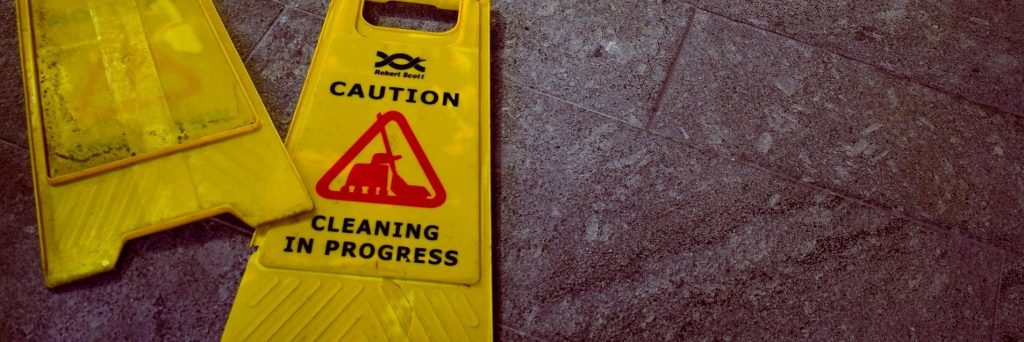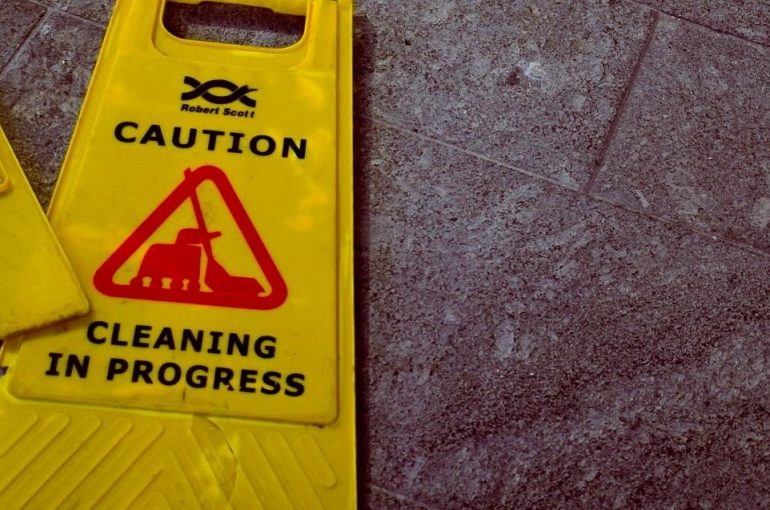Slip and Fall in Florida
Florida Slip and Fall Attorneys

Perhaps you go to your regular grocery store one day, and you are walking down the aisle to find your goods, when all of a sudden you find yourself on the floor of the supermarket because you slipped. Maybe you are thinking to yourself, “I am so clumsy… this is so embarrassing… let me get up before anyone notices.” STOP right there. You did not forget how to walk and you are not clumsy. You should not be embarrassed, and if you are injured, try not to move and call out for help. The reason most likely for your falling was due to a slippery substance on the floor that should not have been there in the first place, and had the store known about it, they should have remedied the condition and made the store a safer shopping environment for their patrons. In the event you find yourself a victim of a slip and fall incident from which you suffered injuries, it is important to know your legal recourse and how to govern yourself as soon as it happens.
Frequency and Examples of Slip & Fall Incidents
Slip and fall cases are a type of premises liability case – they involve injuries that occurred on someone else’s premises due to a hazard on the premises, and you would be surprised to know they happen more than often. According to the National Floor Safety Institute, falls account for over 8 million (23%) hospital emergency room visits, making falls the leading cause of ER visits. Just slip and falls account for over 1 million of those visits. Most common type of slip and fall incidents include:
- Slippery substance/wet floor
- Greasy or oily floors – commonly found at gas stations
- Faulty staircase/steps/railings
- Elevator/escalator accidents
- Equipment malfunctions
- Improper/poor lighting
- Poorly placed rugs/carpets
Florida Law on Slip & Falls
Slip and falls are premised around the legal theory of negligence. Often the two most difficult elements to prove in a negligence case is that the owner of the premises had a particular (1) duty of standard of care to follow, and that he or she in fact did (2) breach that duty (which lead to the causation of your injuries). Under Florida law, when a fall occurs as a result of a transitory substance on the floor, actual or constructive knowledgeof the dangerous condition must be proven by Plaintiff(injured party) for the premises owner to be held liable. Absent actual knowledge, constructive knowledge could be more tricker to prove.
It is possible to prove constructive knowledge by showing:
- The dangerous condition has been present for a long time that the owner of the property should have known about it as part of his/her due care.
- The cause of the dangerous condition is a regular occurrence, making it foreseeable.
Of course it is not uncommon for the property owner to argue that the victim contributed and shared liability for their fall. Florida follows a “pure comparative negligence rule,” which is a standard used to determine your share of legal blame for your accident. Under “pure comparative negligence,” any damages award a personal injury plaintiff receives will be reduced according to the percentage of their fault for the underlying accident. For example, let’s say the jury finds that you are 70 percent to blame for your slip and fall accident. The jury also finds that your damages (including your medical bills, lost income, and pain and suffering) total $10,000. That will leave the property owner responsible for $3,000 (that’s the original $10,000 minus the 70 percent that equates with your share of fault). Common examples that property owners could argue to reduce their share of liability include:
- You weren’t paying attention to where you were walking
- You were wearing inadequate footwear that was not for walking
- You fell on a part of the property where you were not allowed to be
- The dangerous condition should have been obvious to you
- The dangerous condition was made known and visible, such as putting up cones or cautionary signs “open and obvious defense”
- The dangerous condition was only present for a short time and the property owner could not have reasonably known about it
- This type of dangerous condition has never happened before or is a rare occurrence
What to Do After a Slip & Fall
- Remain calm and call out for help.
- Seek immediate medical attention and call 911 if necessary.
- Ask for a manager of the premises. File an incident report with them and get a copy of this report.
- If any witnesses were present, talk to them and make sure to get down their name, telephone number, and address.
- Document the incident if you can with your phone by taking pictures or a video clip of the scene, what you fell on, and your injuries.
- Avoid talking to any insurance company or any entity that represents the owner and/or the premises where you fell.
- Call an experienced personal injury attorney as soon as possible. Sustaining an injury is overwhelming and the legal process can be complex, do not go through it alone. Your attorneys at Borkovic Law Group are ready to help and fight for you. Call us today at (727) 798-5291.








Leave a Reply